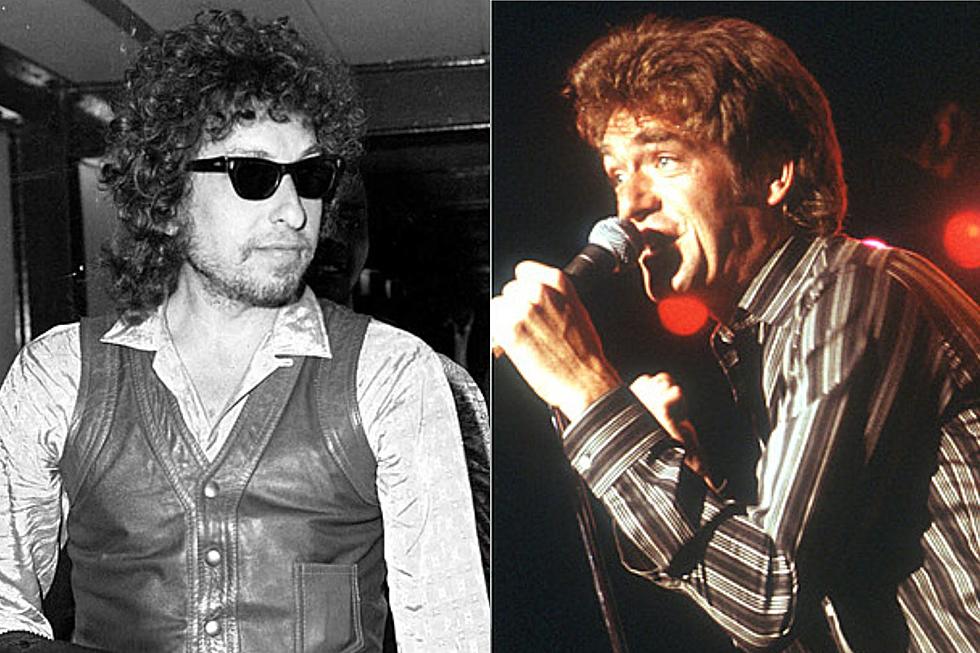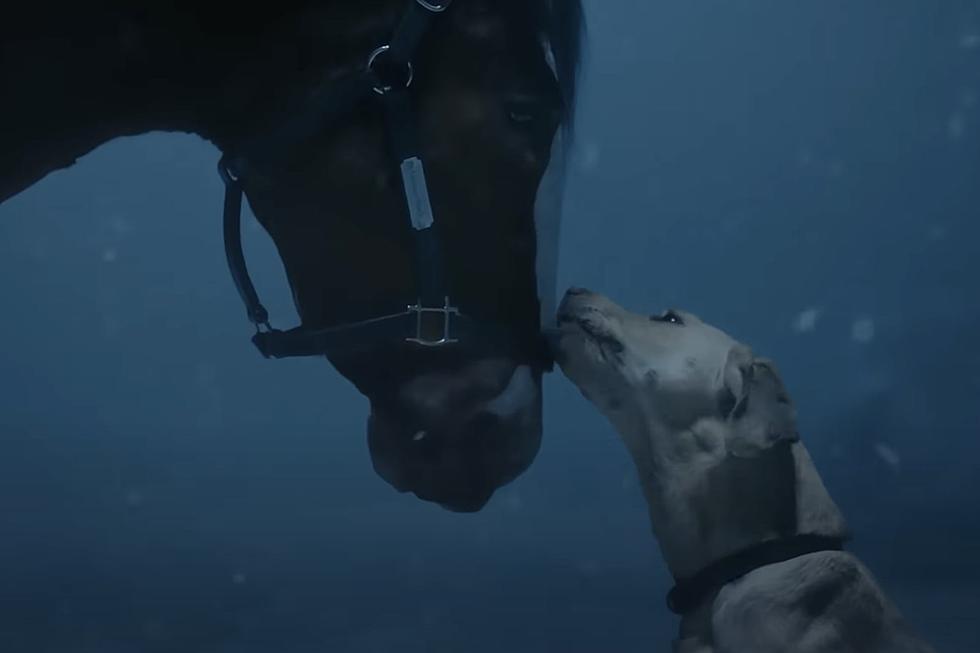
Bob Dylan & the Band, ‘The Basement Tapes Complete: The Bootleg Series Vol. 11′ – Album Review
Don't underestimate the significance of 'The Basement Tapes.' Nearly 50 years after they were made, Bob Dylan and the Band's fabled home recordings remain the Holy Grail of their era, mythical artifacts that have been pieced together over the years but never fully uncovered. From bootlegs to books, the hundred-plus songs recorded by Dylan and the still-unnamed Band during the summer of 1967 around Woodstock, NY have been picked over, dissected and worshiped since the late '60s, when a handful of them were copyrighted for publishing purposes.
But the complete collection of tapes -- most recorded by the Band's Garth Hudson in the basement of Big Pink, the house in West Saugerties, NY the group was renting -- has been shuffled around and mishandled so many times over the years that the release of the six-disc 'The Basement Tapes Complete: The Bootleg Series Vol. 11' marks a historic occasion.
For years, the official version of 'The Basement Tapes' has been a double album released in 1975 that compressed the stereo sound to mono, included newly recorded songs by the Band without Dylan and featured overdubbed versions of songs that were originally performed in June through September 1967. (Stray songs have surfaced on some of Dylan's 'Bootleg Series,' too.) Unofficially, various bootlegs have compiled as much of the material that was known to exist.
But nothing comes close to the 138 stereo tracks found on 'The Basement Tapes Complete.' It's exhaustive, and occasionally exhausting, but it's also a fascinating document of one of rock's most notable summits. Whether reworking old Dylan songs like 'Blowin' in the Wind,' covering Hank Williams' 'You Win Again' or trying on different styles for new tracks 'You Ain't Goin' Nowhere' and 'Tears of Rage,' Dylan, who sings lead on most of the songs here, and the Band have never been looser or more engaging together.
From a cultural perspective, 'The Basement Tapes' offer no less than a condensed history of 20th century popular music. Dylan -- along with Hudson, Robbie Robertson, Rick Danko, Richard Manuel and, for some of the sessions, Levon Helm -- make their way through a catalog of standards, obscurities and hits that range from spirituals to old folk numbers to radio hits from the '50s.
And each is treated equally. 'A Fool Such As I,' a No. 2 hit for Elvis Presley in 1959, is given as much weight as the traditional 'Po' Lazarus,' even with the musicians goofing around on the former. And a take on Curtis Mayfield and the Impressions' 'People Get Ready,' while sketchy, shows that Dylan was listening to other important songwriters of the period. No song is too sacred, or not sacred enough, on 'The Basement Tapes' to escape playful reverence.
But it's Dylan's works in progress -- some that he eventually got around to officially recording, some that he didn't -- that open the door to the sessions' intimacy. Future classics like 'I Shall Be Released,' 'The Mighty Quinn,' 'This Wheel's on Fire' and 'You Ain't Goin' Nowhere' are constructed, dismantled and built back up again in different tempos, with different instruments and new lyrics. The results aren't so much revelatory -- remember, some of these songs and versions have already been released -- as they are finalized, now that they're put into their proper context.
Is it any surprise that one of the best albums of 2014 was recorded almost 50 years earlier? 'The Basement Tapes Complete' finally closes a chapter on one of rock's greatest missing treasures. And with the Beach Boys' equally significant, and also once fractured, 'Smile' now officially available too, the golden era's most mythical and absent recordings are a little less mysterious. But they're no less compelling or remarkable.
More From Ultimate Classic Rock









